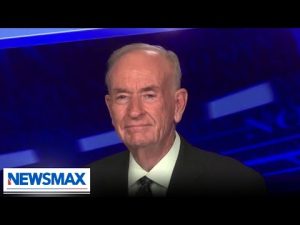**China’s Xijinping Outsmarts Trump in the Latest Trade Negotiations**
In the world of trade wars, it seems that Xijinping has just held an advanced seminar on strategic negotiation, leaving Donald Trump to wonder what went wrong. During a recent face-off in Asia, Xijinping came out on top, showcasing a level of preparation that made Trump’s approach look more like an amateur attempt at scoring a quick PR win. The results? A significant downturn in American markets, proving once again that success in trade isn’t merely about noise, but rather the quiet, calculated moves behind the scenes.
As the two men stepped into the negotiation room, Xijinping exerted pressure on Trump by putting a pause on imports of American soybeans and rare earth materials. It appeared that rather than utilizing the loud and brash tactics often associated with Trump, Xijinping aimed for a low-key strategy that focused on effective leverage without theatrics. In the end, this approach paid off in droves, highlighting a stark difference between the two leaders. On one side, a man who brought his A-game, and on the other, one more focused on making headlines than making deals.
So, what was the actual outcome of these negotiations? Well, to put it simply, Xijinping cleverly agreed to resume purchasing soybeans from the United States, but only to level out ground losing ground previously. Meanwhile, Trump agreed to suspend tariffs on Chinese products and even promised to supply cutting-edge chips that China has been eyeing for years. If that sounds like a one-sided deal, it certainly felt that way to financial experts watching the stock market react with disappointment.
Investor reactions spoke volumes. While the U.S. stock market took a tumble, the Chinese market surged in celebration. It was a clear indication that Xijinping had outmaneuvered Trump at almost every turn. This creates a troubling scenario: does this latest loss mean Trump is vulnerable to feeling humiliated? If history is any guide, Trump doesn’t take defeat lightly, and the question now looms: will he look to distance himself from the consequences of his negotiations or double down in his own trademark style?
Adding another layer of complexity to the equation is the Federal Reserve’s recent decision to cut interest rates. Ironically, as rates were slashed, the markets reacted unfavorably. Every cut has seemingly been met with resistance from investors, who interpret these actions as politically motivated rather than sincere attempts to improve the economy. With inflation still on the rise and asset prices soaring, many are left scratching their heads as to why the Fed continues down this path. Instead of bringing relief, these moves have often resulted in increased borrowing costs for average Americans, leaving them to bear the brunt of poor decision-making from the top.
In summary, the latest trade negotiations have revealed the complexities and unexpected turns in the ongoing tug-of-war between the U.S. and China. With Xijinping clearly taking the lead this round, and the Federal Reserve throwing another wrench in the works, it will be interesting to see how Trump bears the weight of this outcome. As the economic landscape shifts, all eyes remain on how the political chess pieces will align in the days to come. Stay tuned—this trade saga is far from over!







